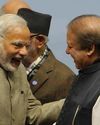DR JAYAPRAKASH NARAYAN is the founder of the LokSatta movement and Foundation for Democratic Reforms.

He speaks to Shreyas Bharadwaj on how the Right to Education Act was conceived with entirely wrong assumptions and aims, and is harming children’s education, both in public and private schools, and the people being hurt the most are the poor. Excerpts:
Do you believe that the Right to Education (RTE) Act has been beneficial?
The evidence is very conclusive; it is not even a matter of opinion any longer. I would cite two important pieces of evidence.
The first is about enrolment. While overall enrolment has increased in the past 10-12 years, it is not because of RTE. It is because of a general improvement in enrolment in the country, general prosperity, movements led by NGOs and others, and most of all because of a marked increase in private school enrolment.
The primary aim of the RTE Act is to try and increase enrolment in government schools, right? It is all about standards in government schools, more money, more teachers, better teacher student ratio, better infrastructure and all those things. But what happened in the past 10 years, after the RTE Act has come into existence? The enrolment in government schools actually fell in absolute numbers by about 11 per cent. And this number is about two years old; today the number may be even worse. And the enrolment in private schools has gone up by 40 per cent. The fact is that after the RTE was enacted, there has been a flight of students from government schools to private schools. You don’t have to prove further, that after spending hundreds of thousands of crores, people have lost further faith in government schooling.
Secondly, be it government or private, the quality of education has deteriorated, or at least there is no evidence of any improvement whatsoever.
This story is from the May 2017 edition of Swarajya Mag.
Start your 7-day Magzter GOLD free trial to access thousands of curated premium stories, and 9,000+ magazines and newspapers.
Already a subscriber ? Sign In
This story is from the May 2017 edition of Swarajya Mag.
Start your 7-day Magzter GOLD free trial to access thousands of curated premium stories, and 9,000+ magazines and newspapers.
Already a subscriber? Sign In

Refuging Progess
There is a well-orchestrated global conspiracy to deny scientific and technological developments from the West to Third World countries.

The Monk Of Science
Vivekananda believed that Religion should be subjected to scientific methods of investigation. The third and concluding part of our series on the Swami and his views on science.
The Next Step
Indian technical manpower can be trained for high-value-added emerging services in the era of mass commoditisation of hardware.
The Threat Of Autarchy
The force of globalisation is an irreversible reality, and it is countries like India and China that will nurture it going forward.

Neanderthals: The Womb Of Caves
Recent discoveries indicate that Neanderthals may have had a rich inner life, including symbolic thought. Indeed, they may have been the progenitors of human religions.

Getting India's World Right
Incremental concessions will get India nowhere with Pakistan and China. What we need is a classically conservative foreign policy, based on realism.

The Hesitant Orbit
In order to march boldly ahead into the deep space, New Delhi must work towards building a station, boost its techno-economic planning and use the Indian Space Research Organisation smartly.

Nudges And Narratives
The debate surrounding Sanjay Leela Bhansali’s Padmavati brings India a complex network of portraits within a cultural world-system.

The Spell Of Specialisation
THE INDIAN ADMINISTRATIVE SERVICE NEEDS AN URGENT REJIG. THE KEY TO SPEED AND EFFICIENCY LIES IN PUTTING AN END TO A GENERALIST APPROACH AND IN GOING FOR A NEW SERVICE.
The Great Gamble
With demonetisation, the prime minister has taken a huge risk— both economic and political. He must succeed, because this move could transform both our economy and our society.